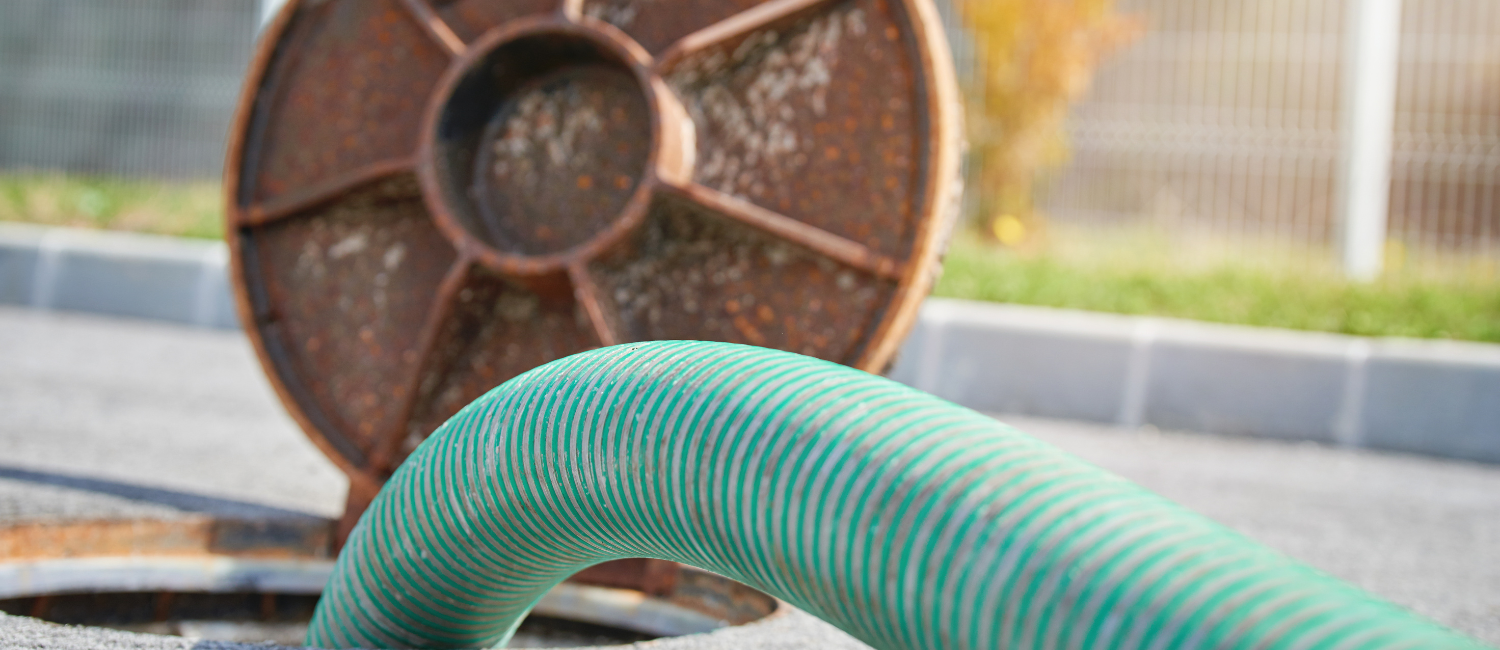
Preventing Septic Tank Floods: Top Causes & Solutions
By: 911 Water Damage Experts
Introduction: Septic tank floods can lead to significant property damage, environmental pollution, and health hazards if not addressed promptly and effectively.
Understanding the causes of septic tank floods and implementing preventive measures is crucial for maintaining a functional and safe wastewater management system.
In this comprehensive guide, we’ll explore the top causes of septic tank floods, provide solutions to prevent them, and address common questions and concerns related to septic issues with water damage.
Top Causes Of Septic Tank Floods
Heavy Rainfall
Heavy rainfall can overwhelm a septic system, causing the tank to flood and overflow. Excessive rainfall saturates the soil, leading to poor drainage and increased water infiltration into the septic tank. Inadequate soil absorption capacity can exacerbate the problem, resulting in backups and floods in the drain field and surrounding areas.
Poor Drainage
Improper drainage around the septic tank and drain field can contribute to flooding. Compacted soil, surface runoff, and landscaping features such as paved surfaces or raised beds can prevent water from properly percolating into the ground, leading to water pooling and flooding around the septic system.
Tree Roots
Tree roots can infiltrate and damage septic system components, including pipes, tanks, and drain fields. As tree roots grow and expand in search of moisture and nutrients, they can penetrate cracks and joints in the septic infrastructure, causing leaks, blockages, and structural damage that can lead to floods.
Clogged Pipes
Clogged or blocked pipes can impede the flow of wastewater, leading to backups and floods in the septic tank and drain field. Common causes of pipe blockages include grease buildup, solid waste accumulation, tree roots, and non-biodegradable materials such as wipes, paper towels, and hygiene products.
Septic Tank Overload
Overloading the septic tank with excessive water usage, including laundry, showers, and dishwashing, can overwhelm the system and lead to floods. Septic tanks have limited storage capacity, and excessive water input can exceed the tank’s ability to process and treat wastewater, resulting in backups and overflows.
5 Solutions To Prevent Septic Tank Floods
Regular Maintenance
Routine septic system maintenance, including tank pumping, inspection, and cleaning, is essential for preventing floods. Regular maintenance helps remove accumulated solids, grease, and debris from the tank, ensuring proper function and preventing backups and overflows.
Proper Drainage
Improving drainage around the septic tank and drain field can help prevent floods. Implementing measures such as installing downspout extensions, redirecting surface runoff away from the septic system, and maintaining vegetative cover can reduce water infiltration and minimize the risk of flooding.
Tree Root Management
Managing tree roots near the septic system is crucial for preventing damage and floods. Planting trees away from septic components, installing root barriers, and periodically trimming tree roots can help mitigate the risk of root intrusion and preserve the integrity of the septic infrastructure.
Water Conservation
Practicing water conservation measures can reduce the risk of septic tank overload and floods. Limiting water usage, fixing leaks, installing low-flow fixtures, and using water-efficient appliances can decrease wastewater generation and alleviate strain on the septic system.
Professional Repairs and Upgrades
Addressing septic system issues promptly and hiring a qualified professional for repairs and upgrades is essential for preventing floods. Repairing damaged pipes, replacing worn-out components, upgrading to larger tanks, and installing advanced treatment technologies can enhance system performance and resilience against floods.
What To Do When A Septic Tank Floods
Limit Water Usage: If you suspect a septic tank flood, immediately reduce water usage to prevent further backups and overflows. Avoid flushing toilets, using sinks, showers, or laundry facilities until the issue is resolved.
Call a Professional: Contact a licensed septic system contractor or plumber to assess the situation and provide emergency repairs. Do not attempt to open or inspect the septic tank yourself, as exposure to raw sewage can pose health risks.
Evacuate the Area: If flooding has occurred in the vicinity of the septic tank or drain field, evacuate the area to avoid exposure to contaminated water and pathogens. Keep children and pets away from flooded areas until cleanup and disinfection are completed.
Document Damage: Take photographs or videos of the flooded area and any visible damage to the septic system for insurance purposes. Documenting the extent of the damage can help facilitate the claims process and ensure proper reimbursement for repairs and cleanup.
Clean Up and Disinfect: Once the flooding has subsided and repairs are completed, thoroughly clean and disinfect the affected area to remove contaminants and prevent mold growth. Use appropriate protective gear, disinfectants, and cleaning agents recommended for use in septic system environments.
Top 10 FAQs About Septic Issues with Water Damage
Can heavy rainfall cause my septic tank to flood?
Yes, heavy rainfall can overwhelm a septic system and lead to floods, especially if the soil is saturated and drainage is inadequate.
How often should I have my septic tank pumped?
Septic tank pumping frequency depends on factors such as household size, water usage, and tank size. As a general guideline, tanks should be pumped every 3 to 5 years to remove accumulated solids and prevent backups.
Can tree roots damage my septic system?
Yes, tree roots can infiltrate and damage septic system components, leading to leaks, blockages, and floods. Proper tree root management is essential for preserving the integrity of the septic infrastructure.
What should I do if I notice sewage backing up into my drains?
If you experience sewage backups, immediately reduce water usage, evacuate the area, and contact a professional septic system contractor for emergency repairs.
How can I prevent septic tank overloads?
Practicing water conservation, avoiding flushing non-biodegradable materials, and scheduling regular maintenance can help prevent septic tank overloads and floods.
Are septic tank floods covered by homeowners’ insurance?
Coverage for septic tank floods may vary depending on the insurance policy and the cause of the flood. It’s important to review your policy and discuss coverage options with your insurance provider.
Can I use septic-safe cleaning products to prevent floods?
Yes, using septic-safe cleaning products and avoiding harsh chemicals can help maintain the balance of bacteria in the septic tank and prevent backups and floods.
How can I improve drainage around my septic system?
Installing downspout extensions, redirecting surface runoff away from the septic system, and maintaining vegetative cover can improve drainage and reduce the risk of floods.
Can a flooded septic tank contaminate my well water?
Yes, a flooded septic tank can pose contamination risks to nearby wells and groundwater sources. It’s important to address septic tank floods promptly to minimize environmental pollution and health hazards.
What should I do if my septic tank floods during a power outage?
If your septic tank floods during a power outage, reduce water usage, evacuate the area, and contact a professional septic system contractor for assistance. Avoid using plumbing fixtures until power is restored and the issue is resolved.
Conclusion
Preventing septic tank floods requires proactive maintenance, proper drainage, and timely repairs to ensure the functionality and longevity of the septic system.
By understanding the causes of septic tank floods, implementing preventive measures, and addressing common questions and concerns, homeowners can minimize the risk of property damage, environmental pollution, and health hazards associated with septic issues with water damage.
Regular maintenance, water conservation, and professional repairs are essential for preserving the integrity of the septic system and protecting the health and safety of residents and the environment.
If you have any questions about our article, “Preventing Septic Tank Floods: Top Causes & Solutions” or need water damage services, feel free to call us at 1-833-WE-DRY-IT or chat with us on social media or LiveChat!
Related Posts
Fire Damage Restoration Articles
The Dos And Don’ts Of Commercial Fire Damage
Forest Fire House Damage: What To Do After Your House Is Damaged By A Forest Fire And Who to Call?
Fire prevention tips for the summer
How to clean up after a house fire
Fire damage restoration checklist
Fire damage tips: 6 hazards property owners miss
How smoke from fires can negatively affect your health
What are the most common causes of house fires?
10 helpful smoke damage cleaning tips
Mould Removal Restoration Articles
Is Bathroom Mould Dangerous? Powerful Mould Prevention Tips Inside
Dangers Of Bathroom Mould And Tips On How To Clean And Prevent It
Got Bathroom Mould? Here Are Some Must-Know Bathroom Mould Cleaning Tips
5 Signs You Have Mould Growing In Your Walls
“Can I Remove Mould Myself?” Our Mould Removal Experts Have Answers
7 Must-Know Reasons Why You Should Get A Mould Inspection Before Buying A House
Does Mould Attract Bugs? Yes And Here’s What Kind And Why
How To Remove Mould From The Attic [Mould Prevention Tips Inside]
How Rain Causes Mould Growth-Prevention Tips Included
Must-Know Tips: How To Remove Mould In Your Basement
Water Damage Restoration Articles
How to prevent home storm damage
What you can expect from a fire damage restoration company
Water damage prevention tips from the most common problems we’ve seen
Top causes of water damage in commercial buildings and how to find them
Must-know water damage tips: What to do after your house floods
What does good water damage restoration look like?
DIY water damage restoration and the hidden dangers
How to choose the right water damage company
Flast floods: What to do before, during and after a flash flood
What to do when your attic leaks?
This is why water damage is a silent home killer
Related Water Damage Services
Fire damage restoration services
Water damage restoration services
Emergency cleanup services
Mould removal services
Weather damage services


